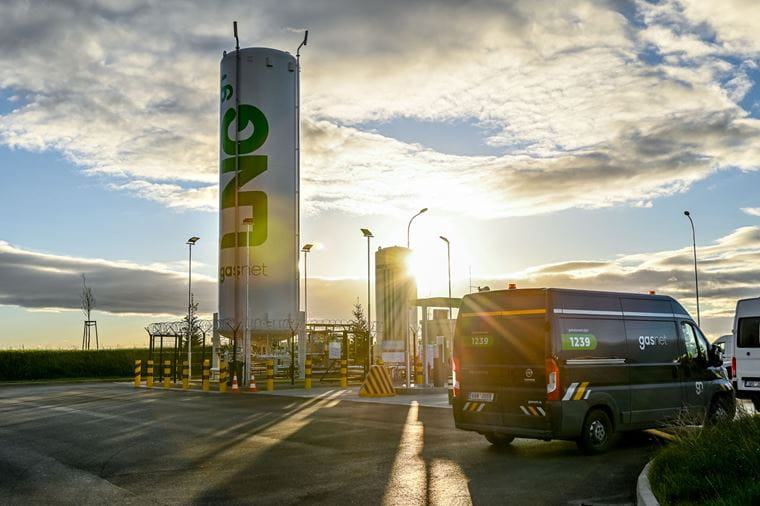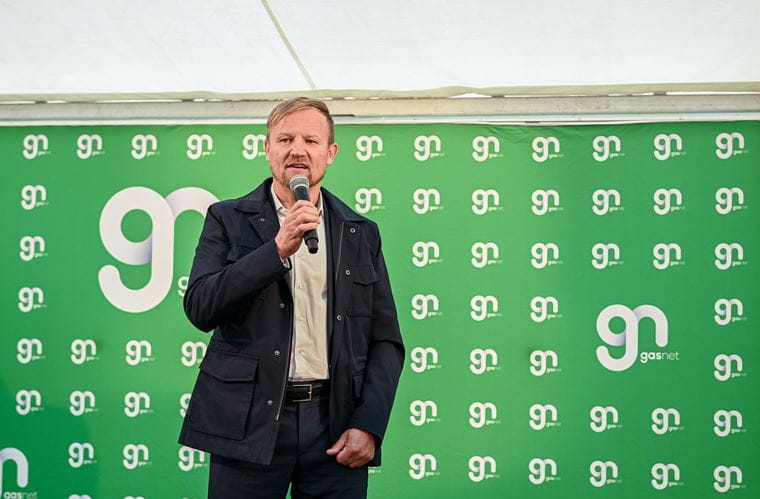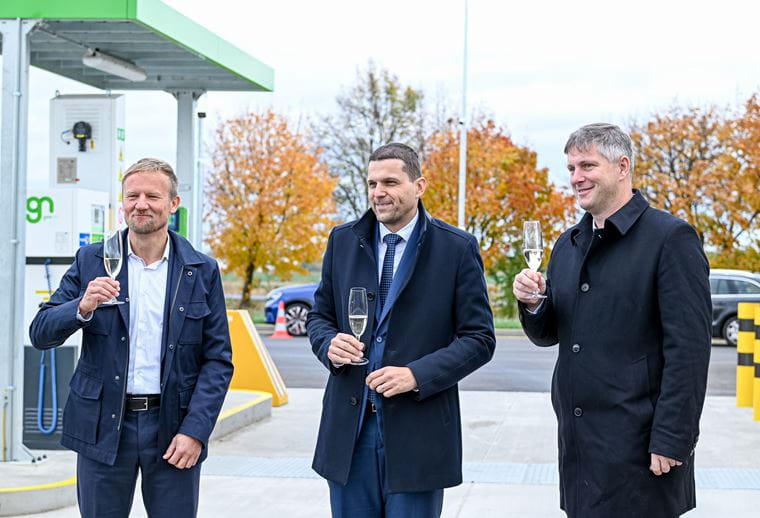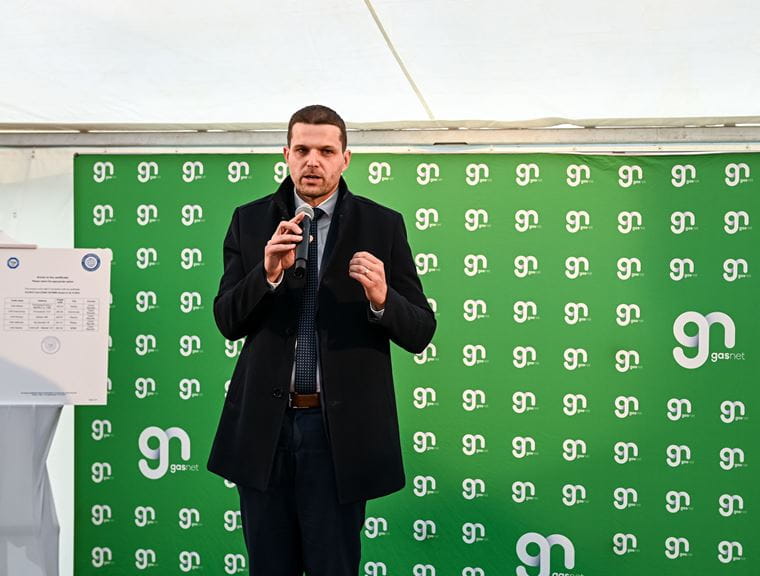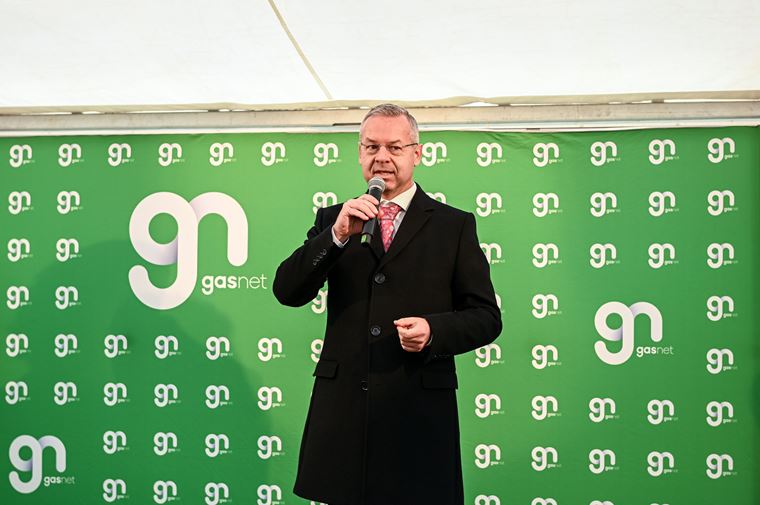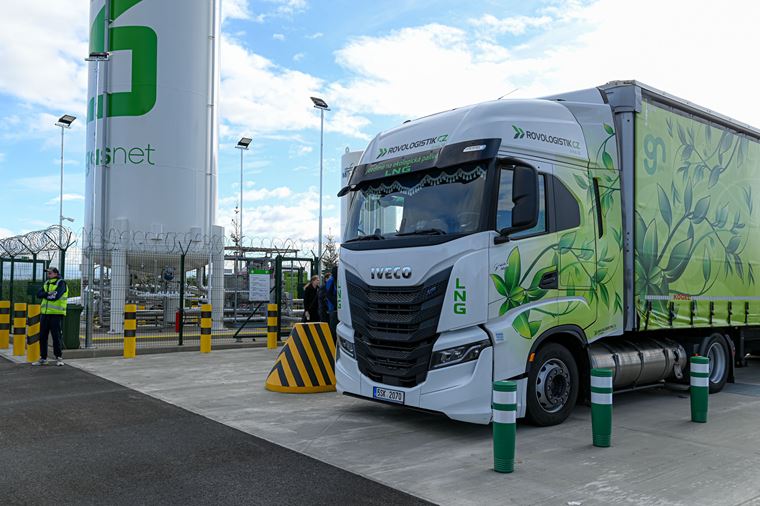First in the Czech Republic: GasNet started selling bioLNG
11/6/2023
GasNet has been successfully promoting the development of liquefied natural gas (LNG) in road freight transport for several years. The company has now strengthened its position as a leader by being the first in the Czech Republic to start selling a renewable variant of this fuel - liquefied biomethane (known as bioLNG).
"By launching the sale of low-emission bioLNG, we are opening a new chapter of green road freight transport on the domestic market. This unique fuel represents the pinnacle of clean truck mobility," says Martin Gebauer, CEO of GasNet Group.
BioLNG is produced from food waste, agricultural waste or even sewage sludge. Liquefied biomethane can be obtained from virtually any biodegradable waste. It is a very advanced circular economy fuel. Compared to diesel, a liquefied petroleum gas engine emits no particulate matter or sulphur oxides. Nitrogen oxide emissions are up to 70% lower with liquefied gas and gas trucks are up to 9 dB quieter, a huge advantage when operating in populated areas.
"The demand for green and sustainable transport is already growing. BioLNG is currently the only available fuel that can effectively respond to this demand. This is not just a matter for logistics companies, but mainly for those who order their goods from them. They are the ones who, in view of their ESG strategies and responsible business objectives, are interested in reducing the emission footprint not only of their production but also, of course, of the distribution of their products. In addition to the environmental impact, the Czech Republic also has the chance to build a supply chain of Czech biomethane to Czech trucks and thus strengthen the energy self-sufficiency of the Czech economy," explains Thomas Merker, CFO of the GasNet Group.
BioLNG: an environmentally friendly and economical solution for truck transport and the entire Czech Republic
Through the European Renewable Energy Directive, the Czech Republic has committed itself to meeting the EU's climate targets. The aim is to reduce greenhouse gas emissions in transport by 14.5% or to achieve a share of 29% renewable energy by 2030.
"Biomethane is currently one of the few available ways to meet these ambitious goals, which is why the Ministry of the Environment in cooperation with the Ministry of Agriculture and the Ministry of Industry and Trade are taking measures to help expand biomethane production in the Czech Republic. I consider the recent approval by the European Commission of a program to support biomethane production to be a crucial measure, which will enable us to provide state aid for the construction and operation of new or converted biomethane production facilities. This is the beginning of the implementation of our vision of transition to emission-free sources," explains Petr Hladík, Minister of the Environment.
In order to ensure that the whole of Europe, including the Czech Republic, is able to meet its emission targets, a number of instruments are being introduced to accelerate decarbonisation. From 2027, for example, emission allowances will be introduced in transport (EU ETS2). The initial price of an emission allowance has been set at EUR 45 per tonne of CO2. According to GasNet's calculations, this measure will impose additional costs of around CZK 8 billion per year on road freight transport in the Czech Republic. "These are extra costs that the Czech economy will have to bear and will lead to a deterioration in its competitiveness. If we start systematically renewing the portfolio of trucks in heavy road transport now, we can significantly reduce these extra costs," adds Thomas Merker.
In addition, in spring 2024, toll rates will be increased by a new emissions-related component. Germany, for example, will introduce higher emissions-related tolls from 1 December this year and the cost of tolls for diesel trucks will rise by up to 84% under the current proposal.
"The price of liquefied petroleum gas has been lower than that of diesel for a long time. Therefore, switching to LNG or renewable bioLNG is definitely worthwhile also in terms of fleet investment planning. We have long-term experience with the operation of LNG filling stations. We were the first in the Czech Republic to use this technology and we are the market leader. We are ready to lend a helping hand to Czech carriers, their principals and the companies themselves, and work together with them to further develop this unique fuel in the Czech Republic," adds Filip Dostál, Head of Business Development at GasNet.
BioLNG at six locations in the Czech Republic
GasNet's infrastructure where bioLNG can be refuelled is located close to the key transport arteries of the Czech Republic. Five LNG filling stations are fully operational and are located in Mladá Boleslav (D10 motorway), Nýřany (D5 motorway), Jažlovice (D1 motorway), Kaplice (future D3 motorway) and Klecany (D8 motorway). A sixth station has been built by GasNet in Hradec Králové. The company will announce its official commissioning soon.
Refuelling is easy
The dispenser at petrol stations is self-service with non-stop operating hours. Each station has the capacity to fill up to six trucks per hour. The refuelling itself is not complicated. Drivers who are not yet experienced in refuelling liquefied gas can take advantage of training from GasNet's technical specialists. The main focus is on operational safety.
At all filling stations, it is possible to pay with bank cards or Eurowag and DKV fuel and refuelling cards, which are also familiar to diesel truck operators.


